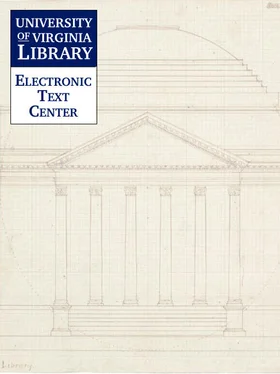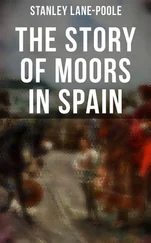Hendrik Loon - The Story of Mankind
Здесь есть возможность читать онлайн «Hendrik Loon - The Story of Mankind» весь текст электронной книги совершенно бесплатно (целиком полную версию без сокращений). В некоторых случаях можно слушать аудио, скачать через торрент в формате fb2 и присутствует краткое содержание. Год выпуска: 2000, Издательство: Electronic Text Center. University of Virginia Library., Жанр: Старинная литература, на английском языке. Описание произведения, (предисловие) а так же отзывы посетителей доступны на портале библиотеки ЛибКат.
- Название:The Story of Mankind
- Автор:
- Издательство:Electronic Text Center. University of Virginia Library.
- Жанр:
- Год:2000
- ISBN:нет данных
- Рейтинг книги:3 / 5. Голосов: 1
-
Избранное:Добавить в избранное
- Отзывы:
-
Ваша оценка:
- 60
- 1
- 2
- 3
- 4
- 5
The Story of Mankind: краткое содержание, описание и аннотация
Предлагаем к чтению аннотацию, описание, краткое содержание или предисловие (зависит от того, что написал сам автор книги «The Story of Mankind»). Если вы не нашли необходимую информацию о книге — напишите в комментариях, мы постараемся отыскать её.
The Story of Mankind — читать онлайн бесплатно полную книгу (весь текст) целиком
Ниже представлен текст книги, разбитый по страницам. Система сохранения места последней прочитанной страницы, позволяет с удобством читать онлайн бесплатно книгу «The Story of Mankind», без необходимости каждый раз заново искать на чём Вы остановились. Поставьте закладку, и сможете в любой момент перейти на страницу, на которой закончили чтение.
Интервал:
Закладка:
Mazzini and Garibaldi were both believers in the Republican form of government. Cavour, however, was a monarchist, and the others who recognised his superior ability in such matters of practical statecraft, accepted his decision and sacrificed their own ambitions for the greater good of their beloved Fatherland.
Cavour felt towards the House of Sardinia as Bismarck did towards the Hohenzollern family. With infinite care and great shrewdness he set to work to jockey the Sardinian King into a position from which His Majesty would be able to assume the leadership of the entire Italian people. The unsettled political conditions in the rest of Europe greatly helped him in his plans and no country contributed more to the independence of Italy than her old and trusted (and often distrusted) neighbour, France.
In that turbulent country, in November of the year 1852, the Republic had come to a sudden but not unexpected end. Napoleon III the son of Louis Bonaparte the former King of Holland, and the small nephew of a great uncle, had reestablished an Empire and had made himself Emperor ``by the Grace of God and the Will of the People.''
This young man, who had been educated in Germany and who mixed his French with harsh Teutonic gutturals (just as the first Napoleon had always spoken the language of his adopted country with a strong Italian accent) was trying very hard to use the Napoleonic tradition for his own benefit. But he had many enemies and did not feel very certain of his hold upon his ready-made throne. He had gained the friendship of Queen Victoria but this had not been a difficult task, as the good Queen was not particularly brilliant and was very susceptible to flattery. As for the other European sovereigns, they treated the French Emperor with insulting haughtiness and sat up nights devising new ways in which they could show their upstart ``Good Brother'' how sincerely they despised him.
Napoleon was obliged to find a way in which he could break this opposition, either through love or through fear. He well knew the fascination which the word ``glory'' still held for his subjects. Since he was forced to gamble for his throne he decided to play the game of Empire for high stakes. He used an attack of Russia upon Turkey as an excuse for bringing about the Crimean war in which England and France combined against the Tsar on behalf of the Sultan. It was a very costly and exceedingly unprofitable enterprise. Neither France nor England nor Russia reaped much glory.
But the Crimean war did one good thing. It gave Sardinia a chance to volunteer on the winning side and when peace was declared it gave Cavour the opportunity to lay claim to the gratitude of both England and France.
Having made use of the international situation to get Sardinia recognised as one of the more important powers of Europe, the clever Italian then provoked a war between Sardinia and Austria in June of the year 1859. He assured himself of the support of Napoleon in exchange for the provinces of Savoy and the city of Nice, which was really an Italian town. The Franco-Italian armies defeated the Austrians at Magenta and Solferino, and the former Austrian provinces and duchies were united into a single Italian kingdom. Florence became the capital of this new Italy until the year 1870 when the French recalled their troops from Home to defend France against the Germans. As soon as they were gone, the Italian troops entered the eternal city and the House of Sardinia took up its residence in the old Palace of the Quirinal which an ancient Pope had built on the ruins of the baths of the Emperor Constantine.
The Pope, however, moved across the river Tiber and hid behind the walls of the Vatican, which had been the home of many of his predecessors since their return from the exile of Avignon in the year 1377. He protested loudly against this high-handed theft of his domains and addressed letters of appeal to those faithful Catholics who were inclined to sympathise with him in his loss. Their number, however, was small, and it has been steadily decreasing. For, once delivered from the cares of state, the Pope was able to devote all his time to questions of a spiritual nature. Standing high above the petty quarrels of the European politicians, the Papacy assumed a new dignity which proved of great benefit to the church and made it an international power for social and religious progress which has shown a much more intelligent appreciation of modern economic problems than most Protestant sects.
In this way, the attempt of the Congress of Vienna to settle the Italian question by making the peninsula an Austrian province was at last undone.
The German problem however remained as yet unsolved. It proved the most difficult of all. The failure of the revolution of the year 1848 had led to the wholesale migration of the more energetic and liberal elements among the German people. These young fellows had moved to the United States of America, to Brazil, to the new colonies in Asia and America. Their work was continued in Germany but by a different sort of men.
In the new Diet which met at Frankfort, after the collapse of the German Parliament and the failure of the Liberals to establish a united country, the Kingdom of Prussia was represented by that same Otto von Bismarck from whom we parted a few pages ago. Bismarck by now had managed to gain the complete confidence of the king of Prussia. That was all he asked for. The opinion of the Prussian parliament or of the Prussian people interested him not at all. With his own eyes he had seen the defeat of the Liberals. He knew that he would not be able to get rid of Austria without a war and he began by strengthening the Prussian army. The Landtag, exasperated at his high-handed methods, refused to give him the necessary credits. Bismarck did not even bother to discuss the matter. He went ahead and increased his army with the help of funds which the Prussian house of Peers and the king placed at his disposal. Then he looked for a national cause which could be used for the purpose of creating a great wave of patriotism among all the German people.
In the north of Germany there were the Duchies of Schleswig and Holstein which ever since the middle ages had been a source of trouble. Both countries were inhabited by a certain number of Danes and a certain number of Germans, but although they were governed by the King of Denmark, they were not an integral part of the Danish State and this led to endless difficulties. Heaven forbid that I should revive this forgotten question which now seems settled by the acts of the recent Congress of Versailles. But the Germans in Holstein were very loud in their abuse of the Danes and the Danes in Schleswig made a great ado of their Danishness, and all Europe was discussing the problem and German Mannerchors and Turnvereins listened to sentimental speeches about the ``lost brethren'' and the different chancelleries were trying to discover what it was all about, when Prussia mobilised her armies to ``save the lost provinces.'' As Austria, the official head of the German Confederation, could not allow Prussia to act alone in such an important matter, the Habsburg troops were mobilised too and the combined armies of the two great powers crossed the Danish frontiers and after a very brave resistance on the part of the Danes, occupied the two duchies. The Danes appealed to Europe, but Europe was otherwise engaged and the poor Danes were left to their fate.
Bismarck then prepared the scene for the second number upon his Imperial programme. He used the division of the spoils to pick a quarrel with Austria. The Habsburgs fell into the trap. The new Prussian army, the creation of Bismarck and his faithful generals, invaded Bohemia and in less than six weeks, the last of the Austrian troops had been destroyed at Königgratz and Sadowa and the road to Vienna lay open. But Bismarck did not want to go too far. He knew that he would need a few friends in Europe. He offered the defeated Habsburgs very decent terms of peace, provided they would resign their chairmanship of the Confederation. He was less merciful to many of the smaller German states who had taken the side of the Austrians, and annexed them to Prussia. The greater part of the northern states then formed a new organisation, the so-called North German Confederacy, and victorious Prussia assumed the unofficial leadership of the German people.
Читать дальшеИнтервал:
Закладка:
Похожие книги на «The Story of Mankind»
Представляем Вашему вниманию похожие книги на «The Story of Mankind» списком для выбора. Мы отобрали схожую по названию и смыслу литературу в надежде предоставить читателям больше вариантов отыскать новые, интересные, ещё непрочитанные произведения.
Обсуждение, отзывы о книге «The Story of Mankind» и просто собственные мнения читателей. Оставьте ваши комментарии, напишите, что Вы думаете о произведении, его смысле или главных героях. Укажите что конкретно понравилось, а что нет, и почему Вы так считаете.












